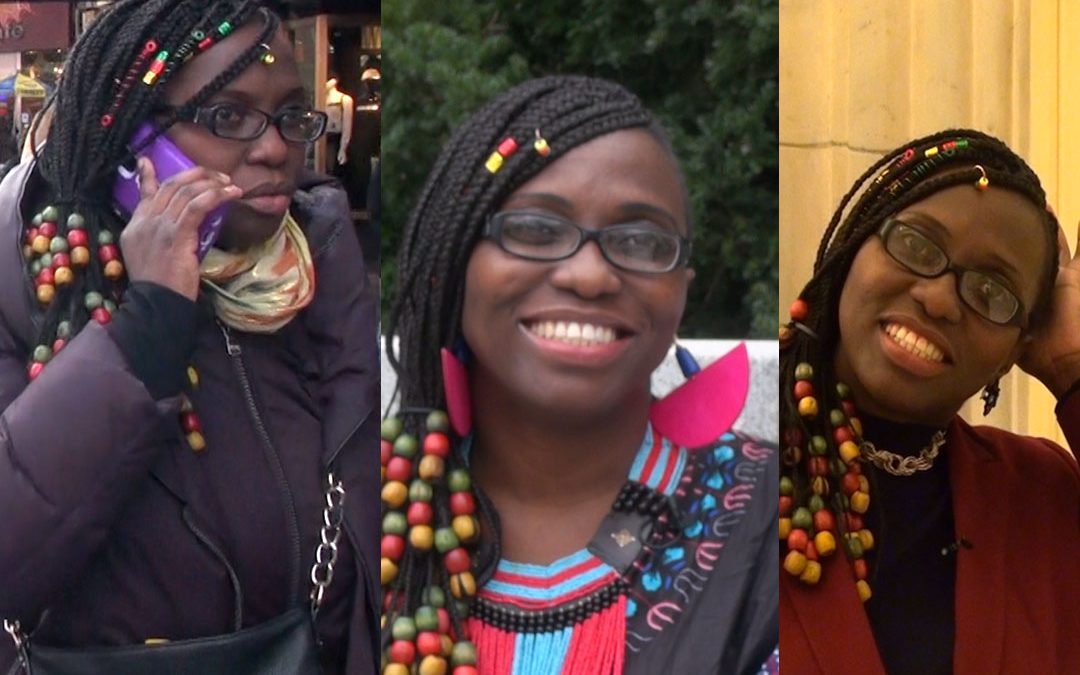WASHINGTON — One woman in Washington, D.C. believes that she can end the Cameroon crisis and she’ll do it almost single-handedly. “All I need,” she says, “is more visibility.”
Sylvie Bello moved from Cameroon to New Jersey with her dad in 1998. Although she’s lived in the Washington area for 21 years, she says she hopes to return once her home country regains stability.
“My heart is in Cameroon. I do hope to return but before that, I have an obligation as a member of the diaspora to solve the crisis,” Sylvie said. “Like diasporans before me, people like Gandhi and Miriam Makeba, I will make the world pay attention, learn as much as I can from the outside, and soon bring peace to my people’s land.”
Compared to other African nations nearby, like Nigeria and the Democratic Republic of the Congo, Cameroon has been relatively peaceful. Its stability has attracted the United States to use the nation’s ports for trade, military bases for regional presence, and territory for the growing number of West Africans displaced because of violence.
Most of the more than 40,000 registered refugees have poured over the Nigerian border to escape violence from extremist groups such as Boko Haram.
But, that’s not the only crisis.
Cameroon’s English-speaking region in the Northwest has long held resentment for the French majority who control the country’s key institutions, including government bodies, courts, and education. In 2017, an Anglophone separatist group launched a guerrilla war against anyone who didn’t support the independence movement.
“We have large groups of unemployed young men with no revenue and have been angry for generations,” said Kah Walla, the president of the Cameroon People’s Party. “They have had no power, no say in society and now all of a sudden, they have guns. They’re being paid and with a gun comes a lot of power not just the power of violence.”
President Paul Biya, who has been in power for 36 years, declared war against the separatist radicals. He has since deployed troops into the English-speaking regions to deter further violence. Many believe that Biya has only exacerbated the crisis and have called for him to step down.
“Paul Biya is the one dividing us. He’s the only one dividing Cameroonians,” said Doris Toyou, a member of the Cameroon American Council’s Consensus. “Paul Biya is a dictator and his oppressive regime has gone on for too long.”
Sylvie founded the Cameroon American Council in 2009 with the purpose of increasing Cameroon’s relevance in American politics. But since October 2018, the last presidential election in the country, her work has picked up pace.
“Paul Biya ran a fraudulent campaign that gave himself another victory. If we hope to make any progress, Paul Biya must be deposed. Only then can we end the crisis,” Sylvie said.
Every day, Sylvie walks down the halls of Congress to remind lawmakers that the Cameroonian people need the international community to take action.
Sometimes, her work involves asking congressional staffers, “Do you remember me?” Other times, she will email, call and knock on offices until a resolution is passed condemning Biya for what she says has been years of crisis mismanagement.
Her plan to end the national conflict is called “Vision 2020 3R: Refugees, Referendum, Recount.” Although there are dissenting opinions among Cameroonian scholars and officials, she believes that the campaign has defined steps that everyone can agree on.
“We have brought together diverse and divergent voices in the crisis. Together we’ll provide a platform for the consensus by immediately addressing the refugee crisis, demanding a recount of the 2018 presidential campaign, and allowing the English speakers to vote on a referendum to decide if they want to remain apart of the country or gain independence,” explained Sylvie.
Sylvie said she is certain she will bring the crises to an end sooner rather than later. “I know I can end the civil war in Cameroon. I never take on a losing battle.”

